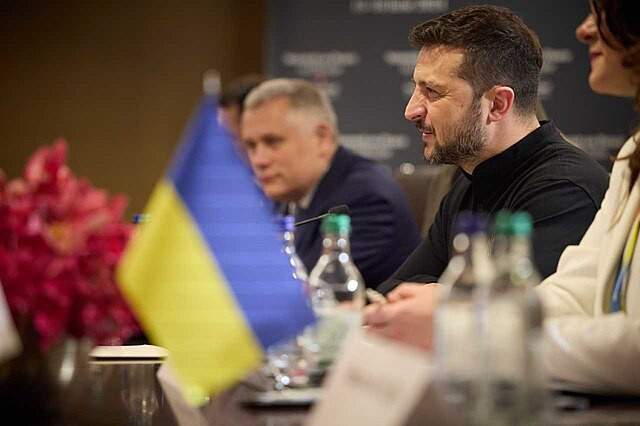As Ukraine commemorated its third Independence Day since Russia's full-scale invasion, a significant prisoner exchange between Moscow and Kyiv took place on Saturday. The exchange, involving 115 prisoners of war from each side, was facilitated by the United Arab Emirates (UAE) and marked a rare moment of diplomacy in the otherwise relentless conflict.
The Ukrainian government announced the return of 115 servicemen, many of whom had been captured in the early months of the war. Notably, nearly 50 of these soldiers were taken during the fierce battle at the Azovstal steelworks in Mariupol, a site that has become emblematic of Ukraine's resistance. The Russian Defense Ministry confirmed that the 115 Russian soldiers released were captured during Ukraine's recent surprise offensive in the Kursk region, a bold incursion into Russian territory that has drawn global attention.
In a message posted on X (formerly Twitter), Ukrainian President Volodymyr Zelenskyy expressed his gratitude for the UAE's role in brokering the exchange. He emphasized Ukraine's commitment to bringing all its servicemen back home. "We remember each and every one. We are searching and doing our best to get everyone back," Zelenskyy wrote, sharing poignant images of the returned soldiers, many of whom appeared gaunt but wrapped in Ukrainian flags, embracing each other upon their return.
The UAE's involvement in this exchange is notable, marking the seventh such mediation effort by the Gulf state since the conflict began in February 2022. The UAE, a close security partner of the United States, has maintained diplomatic ties with both Moscow and Kyiv throughout the war, positioning itself as a key mediator. According to the UAE foreign ministry, this latest exchange brings the total number of captives exchanged through its efforts to 1,788.
Despite the temporary reprieve provided by the prisoner exchange, the conflict continues to escalate. Ukraine's Independence Day, usually a time of celebration, was marked this year by somber commemorations for civilians and soldiers killed in the ongoing war. The day was also marred by continued violence. In the southern Ukrainian city of Kherson, Russian shelling killed two people and wounded four others, including a baby. The region has been a focal point of intense fighting, with Ukrainian forces also intercepting and destroying several Russian drones.
Russia, too, reported drone attacks on its territory. The Russian Defense Ministry claimed that air defenses had shot down seven drones overnight. These incidents occurred in the Voronezh, Belgorod, and Bryansk regions, all bordering Ukraine. The attacks reportedly caused injuries and damage, including a suspected strike on an ammunition depot.
Meanwhile, Ukrainian forces continue to press their advantage in the Kursk region, where they have reportedly carved out a buffer zone in Russian territory. Kyiv's strategy appears to be aimed at diverting Russian troops from the eastern front, where Moscow has been making gains. The situation remains fluid, with both sides locked in a grueling and unpredictable conflict.
Polish President Andrzej Duda made a symbolic visit to Kyiv on Saturday, underscoring Poland's steadfast support for Ukraine. Duda, who has visited Ukraine five times since the invasion, paid his respects at the Wall of Remembrance of the Fallen for Ukraine, a poignant reminder of the human cost of the war. Poland, a key ally, has provided significant military and humanitarian aid to Ukraine, and Duda's visit serves as a reminder of the international support Kyiv continues to receive.
As the conflict enters its 30th month, the prospects for a peaceful resolution remain dim. While the prisoner exchange offers a glimmer of hope, it is clear that both sides are far from reaching a lasting peace agreement. The war has not only reshaped the geopolitical landscape of Eastern Europe but also deepened the humanitarian crisis, with countless lives lost and millions displaced.
In a move likely to further strain relations with Moscow, Zelenskyy signed a law on Saturday ratifying the Rome Statute, enabling Ukraine to join the International Criminal Court (ICC). This step is seen as crucial for Ukraine's efforts to align more closely with European Union standards and could have significant implications for future legal actions related to the conflict.




